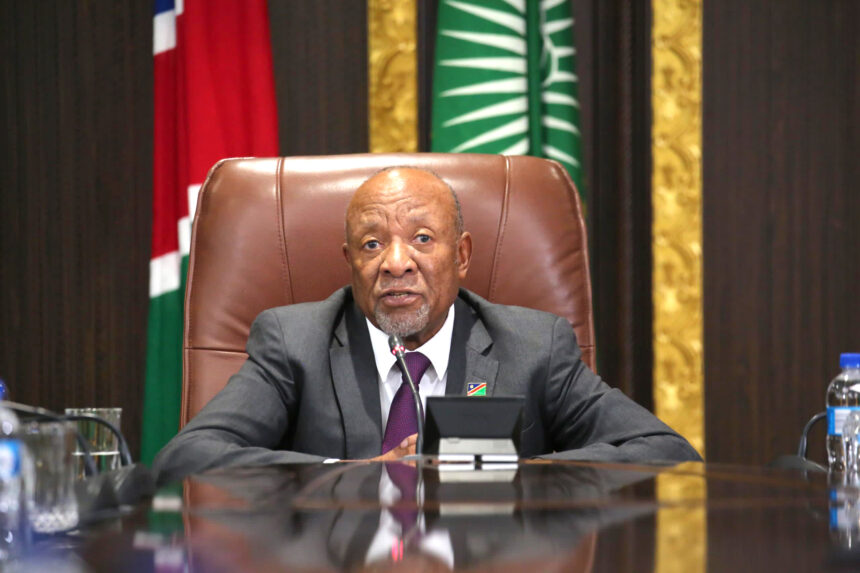Loide Jason
Kavetja Ngaizuvare
President Nangolo Mbumba has called for an immediate ceasefire in conflict zones like Gaza and Lebanon, while urging global unity in addressing unrest.
Speaking under the theme “Cultivating a Culture of Peace” on the occasion of United Nations (UN) Day yesterday, he highlighted the critical role of dialogue and diplomacy in resolving disputes.
“Humanity is going through a difficult hour with global unrest, especially in the Middle East and in some parts of the African continent, leading to death and decimating societies,” said Mbumba.
He continued. “When one region of the world suffers from conflict, its repercussions are felt worldwide.” Namibia, he said, stands in solidarity with other nations in advocating for an end to hostilities.
“We believe that dialogue and diplomacy are essential tools for resolving disputes,” he added, reaffirming the country’s unwavering commitment to peace. President Mbumba also stressed Namibia’s dedication to the UN’s Sustainable Development Goals (SDGs), which focus on eradicating poverty, promoting education, ensuring gender equality, and combating climate change.
Launch
Namibia officially launched the United Nations Sustainable Development Cooperation Framework (UNSDCF) for 2025-2029 yesterday at the UN Plaza in Katutura.
The event coincided with the 79th anniversary of the UN Charter’s entry into force in 1945.
Speaking at the commemoration of the UN anniversary, Hopolang Phororo, the UN Resident Coordinator in Namibia, highlighted the day as a reminder of the global commitment to peace and prosperity.
“It is a reminder of the crucial role played by the UN in fostering peace, development and human rights, while addressing global challenges like climate change, poverty and inequality,” she said.
Phororo also recognised Namibia as one of the region’s strongest and most stable democracies, citing the peaceful transition of power following the death of president Hage Geingob as an example of the nation’s dedication to democratic values and the rule of law.
“The commitment to UN values and the agenda for renewed multilateralism extends across Namibian institutions,” she added.
Phororo referenced the recent visit of Dennis Francis, president of the UN General Assembly, who addressed Namibia’s Parliament on the importance of multilateralism and international cooperation, particularly in preparation for the Summit of the Future.
A key focus of the newly-launched UNSDCF is tackling inequality in an integrated manner, with an emphasis on placing people, especially the youth, at the centre of efforts.
“This requires concrete actions to move beyond rhetoric, and meaningfully engage young people in the implementation of the four results areas. While we have made progress, we recognise that more is still needed,” the representative emphasised.
Another pillar of the framework is innovative financing and partnerships. Phororo noted that the UN will pursue opportunities to leverage both pooled and domestic funding, drawing on successful models from other countries where UN expertise has been used to address national priorities.
A key factor will be forging alliances with International Financial Institutions (IFIs) to fund and scale-up development programmes and market-ready projects.
“We must deepen private sector engagement on development issues beyond limited, ad hoc exchanges, and redefine collaboration with civil society to maximise outreach amid shrinking funding,” she said.



